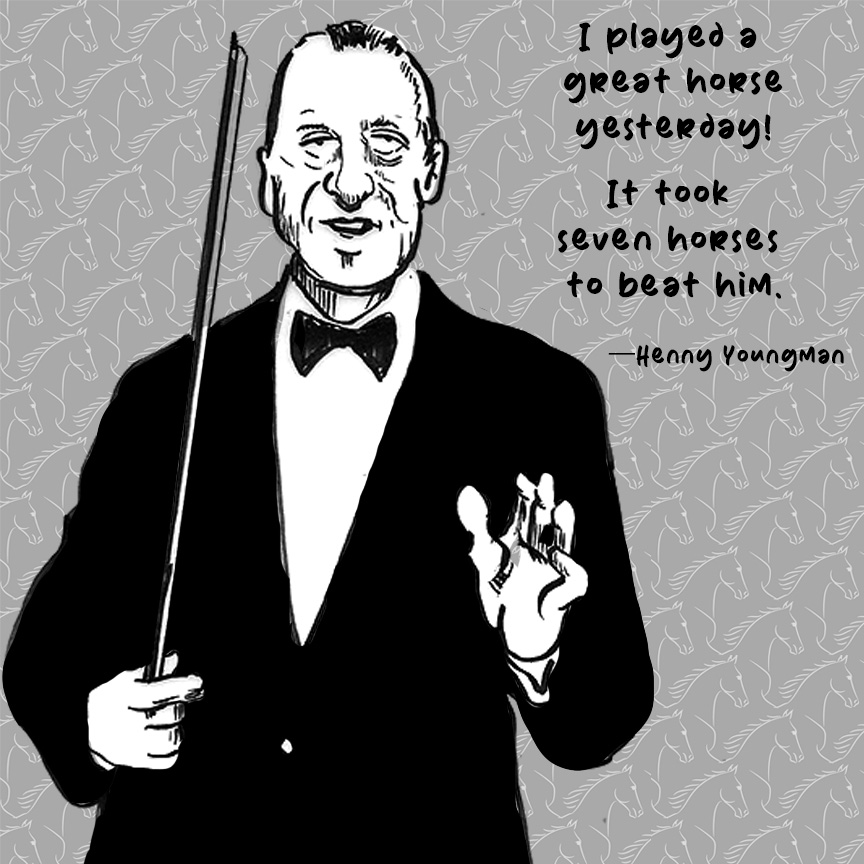
DCS: viola ford fletcher
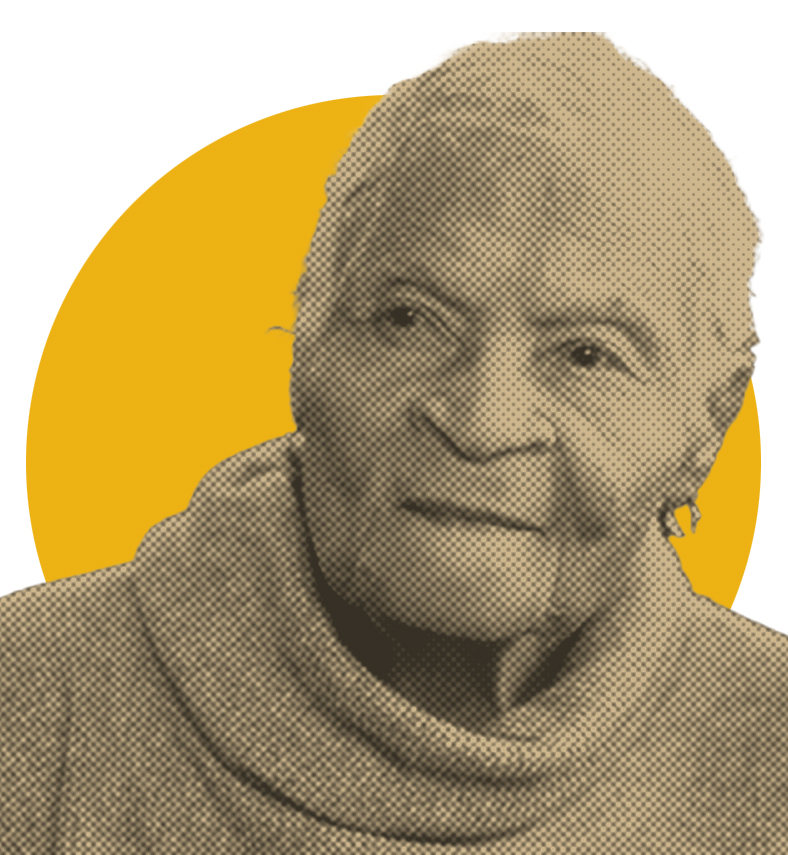
Viola Fletcher was born in Comanche, Oklahoma, but moved to Tulsa with her family. The Fletchers lived in Greenwood, an affluent neighborhood of black families, known as “Black Wall Street.” On May 31, 1921, mobs of white residents — some supposedly working as deputized agent of local government — attacked and destroyed the homes and businesses in more than 35 square blocks of Greenwood. Seven-year-old Viola was asleep when the massacre erupted. The Fletcher family, along with other residents, fled for their lives. They lost everything but the clothes they were wearing.
One hundred years after the horrible event, Viola and other survivors filed suit against the city of Tulsa, the Tulsa Board of Commissioners and the Oklahoma Military Department, seeking reparations. Despite testimony, the suit was dismissed. Unfettered, Viola testified for reparations before the US Congress, stating:
“I will never forget the violence of the white mob when we left our home. I still see Black men being shot, Black bodies lying in the street. I still smell smoke and see fire. I still see Black businesses being burned. I still hear airplanes flying overhead. I hear the screams”
A Justice Department review in 2024 found that federal prosecution may have been possible a century ago, but there was no longer an avenue to bring a criminal case.
In 2023, Viola, with the help of her grandson, wrote a memoir entitled Don’t Let Them Bury My Story.
She passed away in 2025 at the age of 111.
Comments
inktober52: pretend
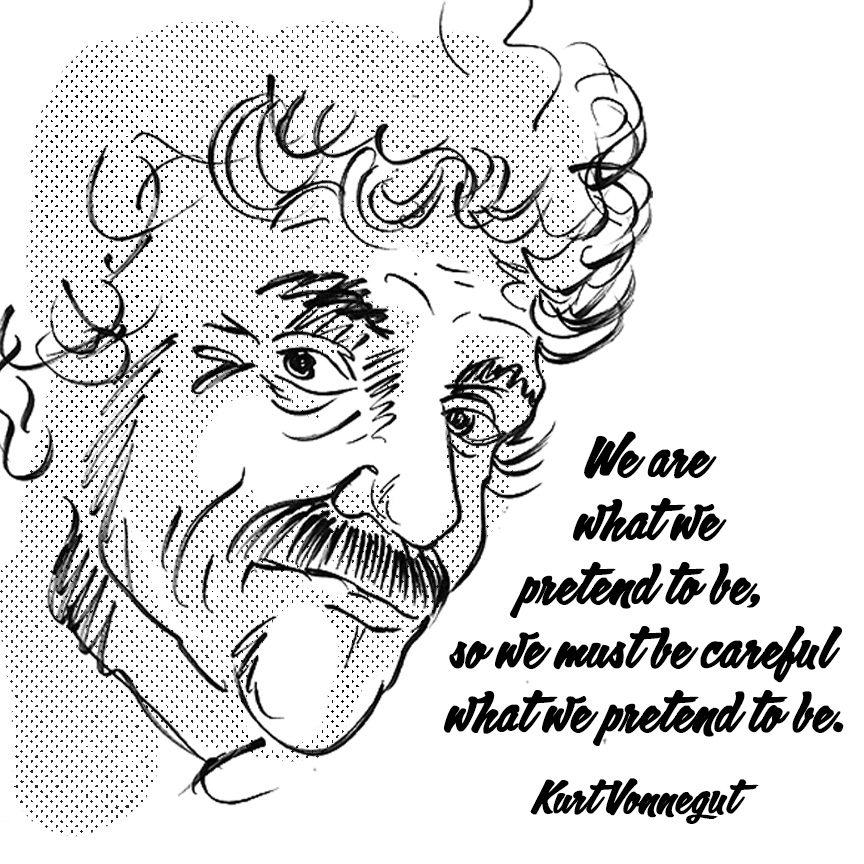
Comments
DCS: hazel scott
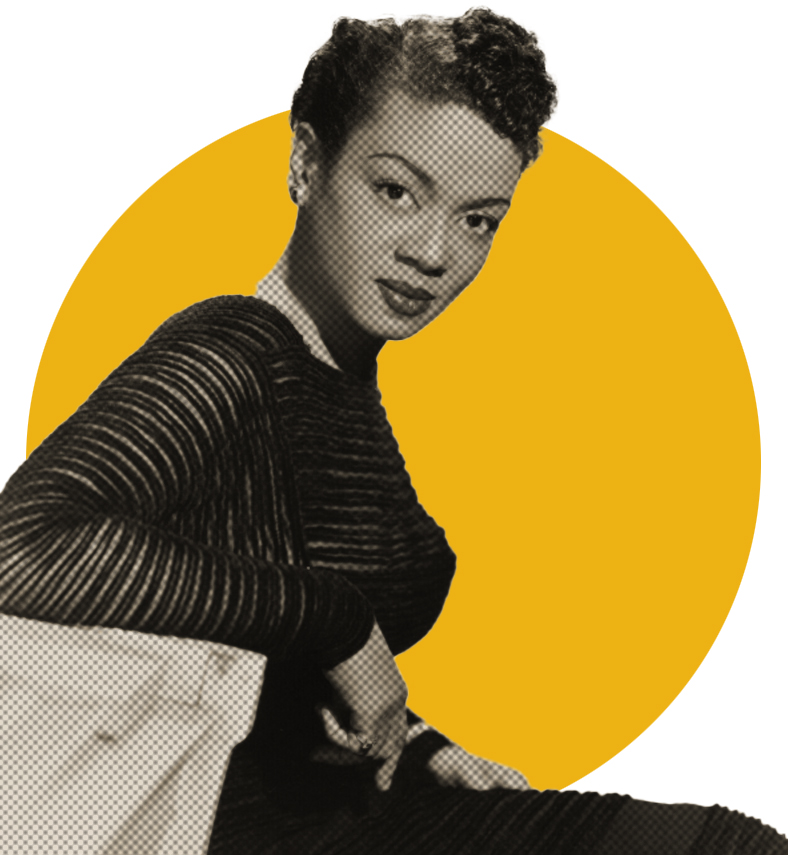
Born in Trinidad, Hazel Scott moved to the United States when she was four. Labeled a child prodigy, Hazel began music studies at the Julliard School of Music at 8 years old. She was able to pick out any tune she heard on the piano. At 13, she joined an all-girl jazz band, playing piano and trumpet.
By 16, Hazel was performing on the radio, as well as with Count Basie’s Orchestra at Roseland Ballroom. Throughout the 30s and 40s, Hazel was a featured attraction at the popular Cafe Society, where she entertained the crowds with her jazz, blues and boogie-woogie. Her act became nationally known and Hazel was making $75,000 a year.
Hazel made the jump to movies, however, she refused to take roles of maids or domestics. She negotiated “final cut” privileges for all of her films and insisted on wearing her own clothes and jewelry to control her own image. Hazel was featured in five Hollywood motion pictures and insisted on being credited as “Miss Hazel Scott as Herself.” In 1950, Hazel became the first American black performer to host their own television series.
Hazel remained a staunch advocate for civil rights. She was outspoken against racial discrimination and segregation, as well as growing McCarthyism.
In the late 50s, Hazel moved to France, where she enjoyed more success. When she returned to the US a decade later, she began to take roles on episodic television, including dramas and soap operas.
Hazel passed way from cancer in 1981 at the age of 61. At the 61st Grammy Awards ceremony, singer Alicia Keys thanked Hazel Scott for her inspiration, noting that “she always wanted to play two pianos,” alluding to Hazel’s ability to play two pianos at one time.
Comments
inktober52: trapped
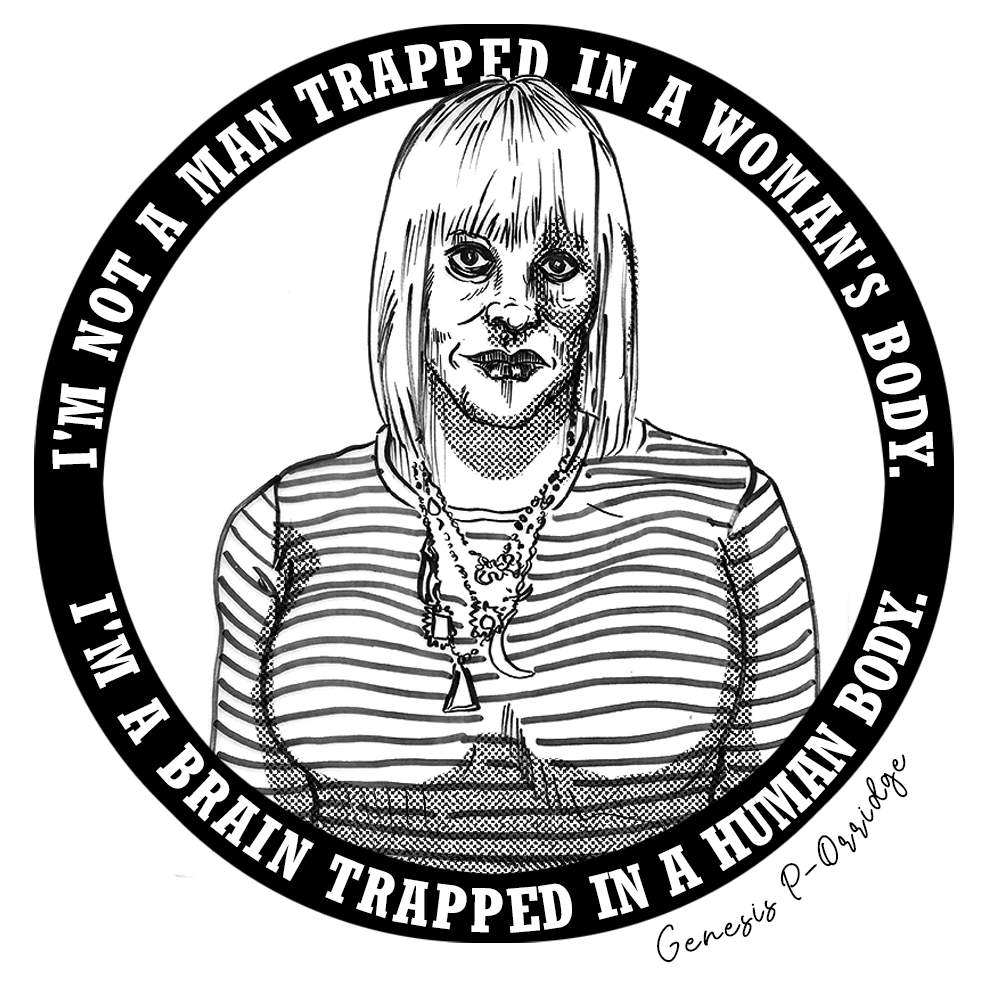
Comments
DCS: effa manley

Effa Manley was born in Philadelphia and , after graduating from vocational school, took a job as a hatmaker. A baseball fan from an early age, she met Abe Manley at a New York Yankees game. Abe owned the Newark Eagles, a popular baseball club in the Negro Leagues. Effa married Abe in 1935 and became the team’s full-time marketing and promotional agent. She worked hard to improved conditions for her players. She arranged for an air-conditioned bus for travel, a luxury among the Negro Leagues.
Effa was critical of Brooklyn Dodgers’ executive Branch Rickey, citing his signing of Jackie Robinson as a “good-for-business” decision, rather than a civil rights issue. She also butt heads with Robinson himself when he said the Negro Leagues should dissolve. Effa was quick to remind Robinson of his humble beginnings.
Effa expanded her civil rights efforts beyond the baseball field. She organized boycotts of department stores that refused to hire black employees. She held an “Anti-Lynching Day” at the Newark Eagles home field, where she handed out “Stop Lynching” buttons to support efforts to pass federal anti-lynching legislation. During World War II, she arranged for USO performances for segregated black troops.
Effa died in 1981 of a heart attack. She was 84. In 2006, Effa was the first (and so far only) woman inducted into the Baseball Hall of Fame.
Comments
inktober52: granny
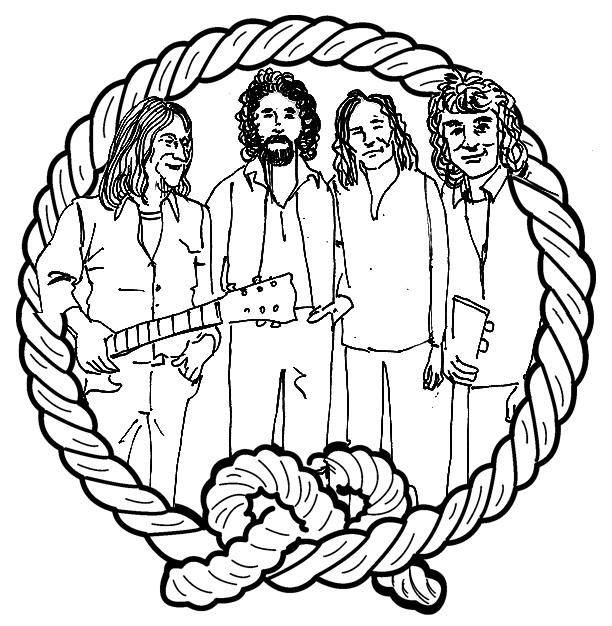
one reef knot, two grannies
and we were bound to stay together for life
10cc, the slightly offbeat British band, was formed by three childhood friends. Lol Creme, Kevin Godley and Graham Gouldman grew up in Manchester and regularly attended — and later performed at — functions at the Jewish Lads’ Brigade, a local youth group. Budding rockers Godley, Creme and Gouldman formed The Mockingbirds. Eric Stewart, a friend of Gouldman’s, was looking for a new gig after the demise of his band, The Mindbenders. The foursome united and became 10cc. The combination of Gouldman’s pop sensibilities (he had written “Groovy Kind of Love.” “Heart Full of Soul,” “For Your Love” and “No Milk Today) paired with Godley and Creme’s theatrical leanings and skewed outlook made for a winning — if not unlikely — partnership.
10cc were far more popular in their native England than in the United States. They scored a few charting singles, including the lush, moody hit “I’m Not in Love,” but they never really hit “the big time.” In 1976, after the release of their fourth album “How Dare You,” Godley and Creme announced theri displeasure with the way Gouldman and Stewart were steering the band. They left 10cc to work on their epic “Consequences” concept album and to focus on production and the development of the “Gizmo,” a music-altering guitar effects attachment.
Gouldman and Stewart soldiered on, determined to release a hit album without Godley and Creme. And, sure enough, they did with “Deceptive Bends” with yielded the Number 5 single “The Things We Do For Love.”
10cc released several more albums and went through several personnel changes before calling it quits in the middle 1990s. Most recently, Graham Gouldman has assembled a crew of musicians and toured under the guise of 10cc, despite being the sole original band member.
The quote from “Honeymoon with B Troop” — one reef knot, two grannies and we were bound to stay together for life — is ironic, as the band was not bound to stay together for life.
Comments
DCS: joyce bryant
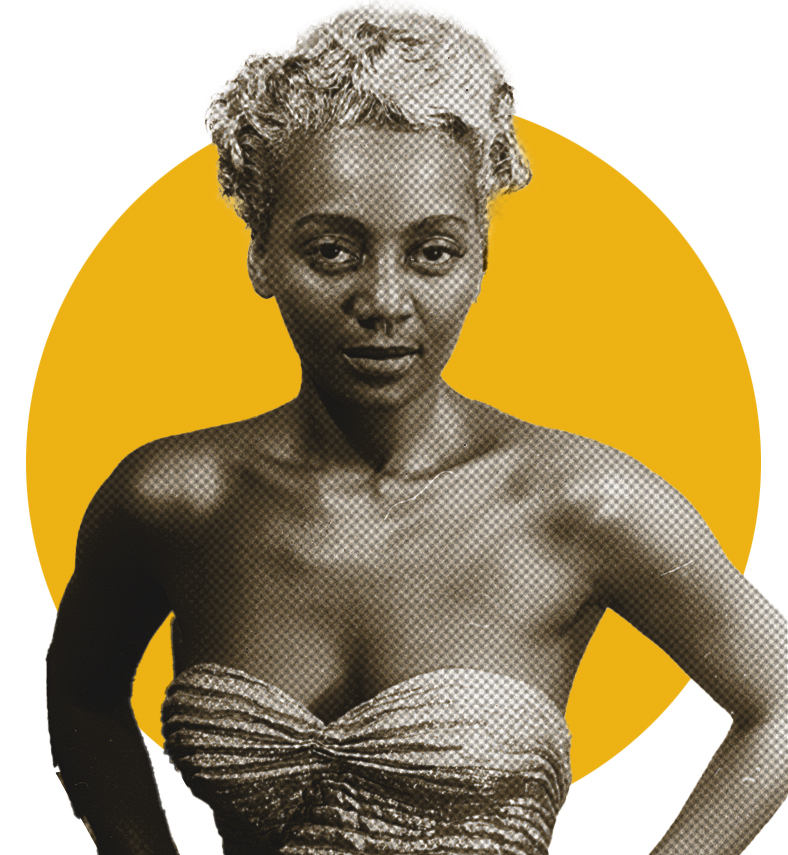
Joyce Bryant had aspirations of becoming a teacher. But, at 19, she was dared to participate in an impromptu singalong at a local Oakland club. She noticed that she was the only one singing. The club owner offered her $25 to continue. She accepted, as she need the money to get home.
And that was the beginning of Joyce’s career.
By the late 1940s, Joyce was performing in New York nightclubs. Those gigs led to a 118-date tour of the resorts in the Catskill Mountains. She soon found herself on the same bill as the famed Josephine Baker. In an attempt to stand out, Joyce painted he hair silver. She put on a tight silver dress and draped herself in a silver fox coat. In Joyce’s own recollection: “I stopped the show.”
Tight, cleavage-revealing silver dresses became Joyce’s trademark, along with her silver hair and four-octave vocal range. Joyce was turning heads and becoming a top headliner. She earned the nicknames “The Bronze Blond Bombshell” and “The Black Marilyn Monroe.” Singer Etta James later admitted that she tried her best to copy Joyce’s style.
Joyce recorded a number of popular and successful songs, some of which were banned from radio play for their suggestive lyrics. Her 1954 recording of “Running Wild” was given the “okay” by CBS and NBC censors, who deemed her previous efforts “too sexy for airplay.”
A fierce opponent to Jim Crow laws, Joyce became the first black entertainer to perform at a Miami Beach hotel, despite threats from the Ku Klux Klan. She also broke racial barriers at nightclubs in the Washington, DC area.
In spite of her provocative act, Joyce was a deeply religious person. She hated the drug and gangster culture so prevalent in the nightclub business. In 1955, she left show business to focus on civil rights issues and church interests. Joyce regularly organized fundraisers for food, medicine and clothing for underprivileged communities. She appeared sans makeup and without her trademarked silver hair.
She made a return to the stage in the 1960s, touring with French and Italian opera companies. Coming back her jazz roots, Joyce worked as a vocal coach for Phyllis Hyman and Raquel Welch in the 80s.
Joyce died from complications of Alzheimer’s Disease in 2022 at the age of 95.
Comments
inktober52: crunch
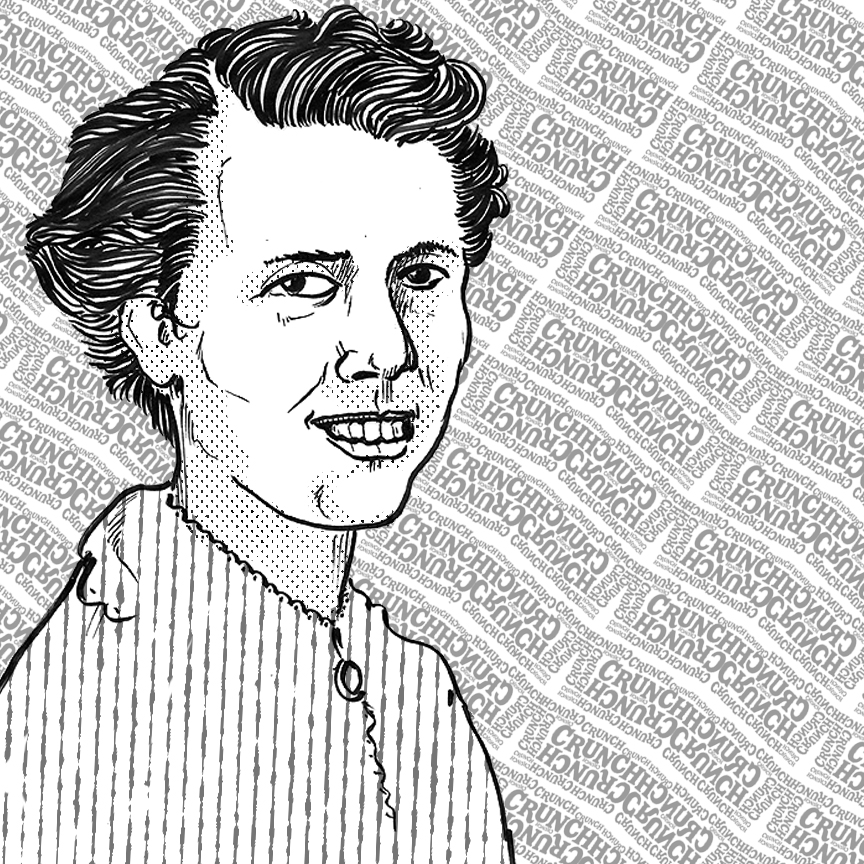
Pamela Low graduated from the University of New Hampshire in 1951 with a degree in microbiology. She went to work as a flavorist for Arthur D. Little, an international consulting firm based in Boston.
In the early 1960s, Pamela was tasked with devising a flavor for a new cereal to be introduced by Quaker Oats, a client of Arthur D. Little. Pamela thought… and remembered a dish that her grandmother would prepare and serve to her family. The dish was rice in a butter and brown sugar sauce. The flavor stuck with Pamela and she began to work towards recreating the taste. Her efforts resulted in the flavor of Cap’n Crunch… a taste that she described as “want more-ishness.”
Cap’n Crunch — as a concept — was developed long before Pamela was involved. It was conceived by Allan Burns, who would later co-create The Munsters and The Mary Tyler Moore Show. The character of blustery Cap’n Horatio Crunch and his intrepid crew was developed in the Marketing Department of Quaker Oats. They just needed a cereal to go with their idea. When Pamela’s concoction was delivered to approving Quaker executives, little did they suspect that Cap’n Crunch would one day lock in as the second most popular cereal after Kellogg’s Frosted Flakes. Needless to say, Quaker was very pleased.
Pamela worked on various other projects during her 34 years with Arthur D. Little, including Mounds, Almond Joy and Heath Bars. Pamela collected various pieces of Cap’n Crunch memorabilia, but, as she admitted in a 2002 interview, she never cared too much for cereal.
Pamela passed away in 2007 at the age of 79.
Comments
DCS: kandi barbour

Pretty Kandi Barbour was discovered by photographer Diana Hardy in the 1970s. As a teenager and under Hardy’s direction, Kandi began posing for various men’s magazines. At 19, she ventured into the world of hardcore pornography, appearing in over 30 films. She eventually left the adult film business to focus on mainstream modeling. She became a familiar figure in a series of television commercials for various K-Tel Records releases in the 80s.
Kandi split her time between Los Angeles and Honolulu, Hawaii, where she worked as an exotic dancer at Club Hubba Hubba.
After falling out of the public eye, Kandi was discovered dead from exposure on a San Francisco street in January 2012. Her body was unclaimed and was donated for medical research and later cremated.
Court records revealed that Hawaiian railroad and shipping mogul Laurence Dorcy had left a substantial sum of money to Kandi in his will when he passed away in 2011. At the time, no one knew how to locate or contact Kandi and the inheritance went unclaimed.
